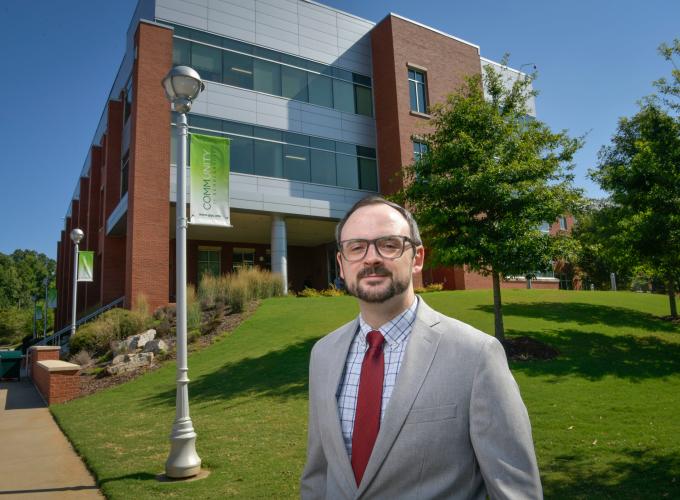The Federal Reserve Board has a tough decision to make when it meets at its Sept. 19-20 meeting. The board will decide if it wants to raise interest rates for the 12th time since March 2022 to stem inflation.
With so many rate hikes, skyrocketing prices on goods and services and an inflation rate that still hovers above the Fed’s 2% target, one may wonder if raising interest rates really works.
Dr. Philip Vinson, assistant professor of economics in Georgia Gwinnett College’s School of Business, says yes.
“Inflation peaked 9.1% in June 2022, according to Consumer Price Index data,” he said. “But based on the data, inflation has, in fact, come down to 3.2% as of July 2023. The perception might be that inflation hasn’t really come down. I think the reason why that perception exists is because prices haven’t come down, and that might be what people expect to happen when inflation comes down.”
By raising interest rates, Vinson said the goal of the Federal Reserve Board is not to bring prices down – it’s to bring inflation down.
“If you’re running a mile, the price level is how far you’ve run, and inflation is how fast you’re going,” he explained. “The Fed is not trying to reverse the price increases that have already occurred, they are only trying to slow down the rate of increase.”
So in that sense, the Fed has done its job by cutting inflation from its peak of 9%. However, with inflation not yet at the Fed’s 2% target, there exists speculation that further rate increases might push the economy into a recession.
“Back when inflation was up near double digits, it wasn’t really that complicated,” Vinson said. “The Fed had to raise rates to address inflation – even if it caused a recession – and they were willing to do that. Now that inflation is close to 3%, is it really worth causing a recession over that one point in inflation? That’s the discussion they need to have.”
Vinson said raising rates can stymie business growth and employment, since higher rates may preclude businesses from borrowing money to start new projects and hire employees. Rising interest rates have already impacted the housing market because homeowners who locked in on lower rates may be reluctant to sell, subsequently tightening inventory available to buyers. Finally, he said, a rise in interest rates can impact the stock market, noting a “direct causal effect” when the Fed raises interest rates, which drives stock prices down.
“If you’re near retirement and you’re seeing the Fed raising rates, it’s bad timing if you’re holding a lot of stocks in your portfolio,” he said.
Vinson said the upcoming Federal Reserve Board meeting is going to be important because with such a slim margin between the current and targeted inflation rates, board members are going to have to make the choice between hitting a target and triggering a possible recession.
“The bottom line is we are approaching the point where the choice is pretty difficult because the tradeoff between battling inflation and possibly starting a recession is becoming a challenging tradeoff to make,” he said. “For that reason, I wouldn’t be shocked at all if the Fed did not raise rates this month.”

